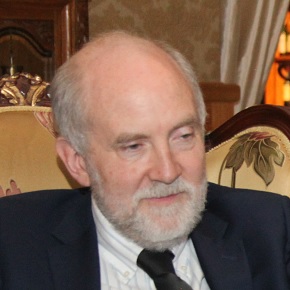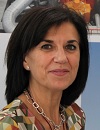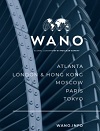 |
||
|
TVEL Fuel Company of Rosatom and Hermith GmbH establish a joint venture for titanium production TVEL, PUBLISHED 08.06.2019 During the St. Petersburg International Economic Forum, TVEL Fuel Company of Rosatom and Hermith GmbH (Germany), a major European titanium supplier, have concluded an agreement aimed at establishing a joint venture for production of titanium alloys. The document has been signed by President of TVEL JSC Natalia Nikipelova and Director General of Hermith GmbH Alexey Rasskazov in the presence of Director General of Rosatom State Corporation Alexey Likhachev and Federal Minister for Economic Affairs and Energy of Germany Peter Altmaier. The agreement determines the relevant corporate procedures for establishment ofthe new company, as well as a list of documents required for the investment deal and their purpose. The Russian-German joint venture will specialize in high value-added products for knowledge intensive industries such as aviation, automotive industry and medicine. In the first stage, it is planned to launch titanium wire production for additive manufacturing (3D printing), as well as seamless pipes for hydraulic aircraft systems. Further on, the parties consider expanding the product range, in particular, with such products as aircraft fasteners, titanium springs for the automotive industry, parts of endoprosthesis, superconducting materials, etc. The document signed at SPIEF-2019 is a logical continuation of the cooperation agreement that TVEL JSC and Hermith GmbH concluded at the Atomexpo-2019 International Forum in Sochi in April, 2019. By this time, the Russian and German companies have already accumulated positive experience in joint supplies of titanium products manufactured at the Chepetsky Mechanical Plant (ChMP JSC, Glazov, Republic of Udmurtia) to the European market. Development of this partnership will enable the companies to advance the industrial cooperation and integrate their technological expertise. "The project of TVEL JSC and Hermith on the joint development of titanium production strictly corresponds to the strategy of TVEL Fuel Company and Rosatom State Corporation, aimed at increasing revenues from non-nuclear businesses. One of the most promising industries is metallurgy. The share of metallurgical products manufactured by Chepetsky Mechanical Plant makes up more than 25% of the total "non-nuclear" revenues of TVEL Fuel Company, which amounted to 13.5 billion rubles in 2018. Cooperation with Hermith would pave the way for us to new titanium consuming markets with high added value. These are high-tech industries with the most stringent requirements for products quality," said Natalia Nikipelova, President of TVEL JSC. "The joint venture between Hermith GmbH and TVEL JSC is a significant step in development of German-Russian cooperation in production and supply of high-tech titanium products to the markets of Europe, the USA and Canada. The products, already launched in batch production, are a competitive, high-quality, and reliable," said Alexey Rasskazov, General Director of Hermith GmbH. The cooperation between TVEL JSC and Hermith GmbH was launched in late 2016 with the signing of a major contract for supplies of ChMP-produced titanium products launched in batch production with support from the German company. The overall amount of product sales in the European market has exceeded 70 tonnes. In total, more than 100 high technology product names have been put on production, including titanium bars, plates, tubes and wire. The main purchasers in Western Europe include Bombardier, Leonardo, Fucine Umbre, Thyssen Krupp, Vacucast, Permedica and others. Other news: 452 nuclear units are operating in the world Another 54 units have the status of the being built one. Russia and China signed the Executive contracts for the construction of Tianwan NPP and Xudabao NPP Package defines the major lines to develop cooperation between Russia and China. WANO members vote to establish a new Branch Office and Support Centre in China WANO has defined a high-level, three-phase deployment model for the office in Shanghai. |
Hero of the day 
Matthew Bunn: we can still work together I think the fact that the world's two largest nuclear complexes are proceeding in total isolation from each other is a danger to each of us and a danger to the rest of the world as well. And we have to find the way to fix it. INTERVIEW
Amparo Gonzalez Espartero OPINION
WANO |

